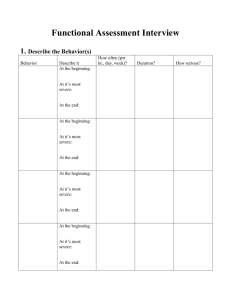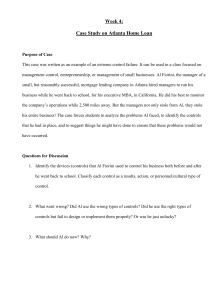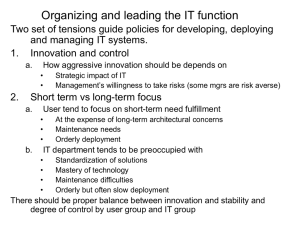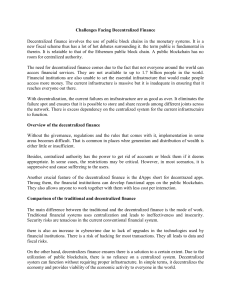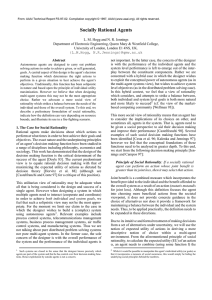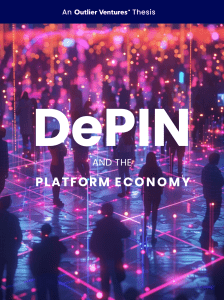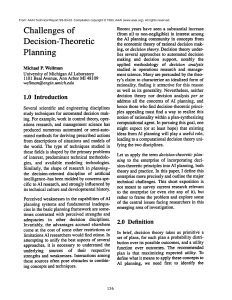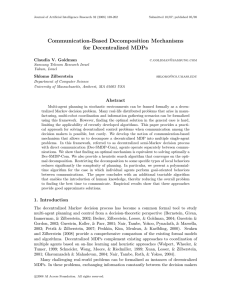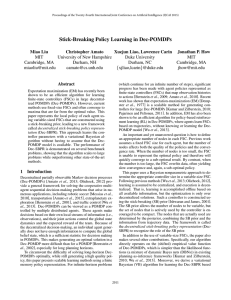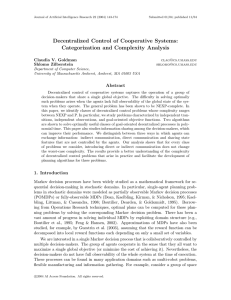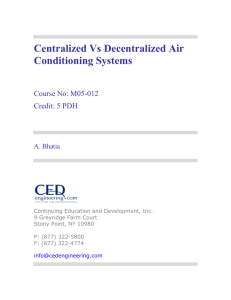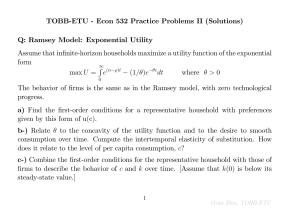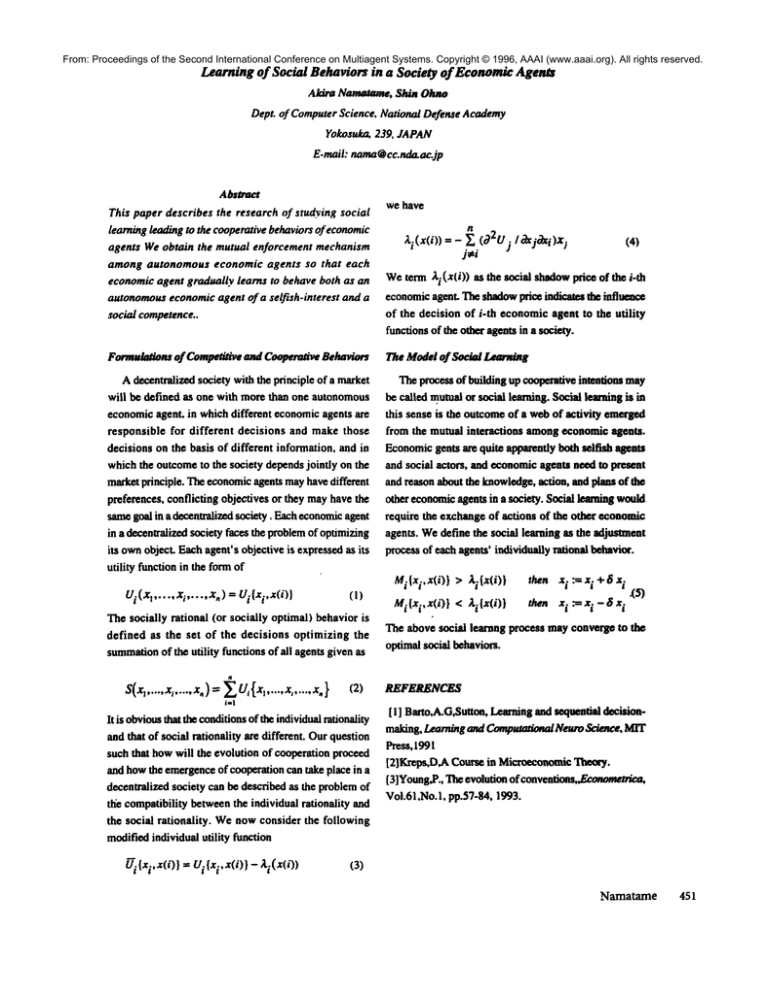
From: Proceedings of the Second International Conference on Multiagent Systems. Copyright © 1996, AAAI (www.aaai.org). All rights reserved.
Learning of Social
Behaviors
in a Society
of Economic Agents
Akira Namatame, Shim Ohno
Dept. of ComputerScience, National Defense Academy
Yokosuko, 239. JAPAN
E-mail: nama@cc.nd~ac.jp
Abstract
This paper describes the research of studying social
learning leading to the cooperative behaviors of economic
agents We obtain the mutual enforcement mechanism
among autonomous economic agents so that each
economic agent gradually learns to behave both as an
autonomouseconomic agent of a selfish-interest and a
social competence..
we have
Zi(x(i))
(4)
=- i (j2U IcPxjOxi)xj
Weterm Zi ( x( i)) thesocial shadow price of t he i-th
economic
agent. Tbeshadow
price indicatus the influmge
of the decision of i-th economicagent to theutility
functions of the oth~ agents in a society.
Formulationsof Competitive and Cooperative Behaviors
A decentralized society with the principle of a market
The Model of Social L~aming
The process of building up ~tive intentioM may
will be defined as one with more than one autonomous he called mutualor social learning. Social learning is in
this sense is the outcomeof a webof activity emerged
economicagent, in which different economicagents are
responsible
for different
decisions and make those
decisions on the basis of different information, and in
which the outcometo the society depends jointly on the
market principle. Theeconomicagents mayhave different
from the mutual interactions among economic agents.
Economicgents are quite apparently both selfish alpnts
and social actors, and eeonomicagents need to present
and reason about the knowledge,action, and plans of tbe
preferences, conflicting objectives or they mayhave the
samegoal in a decentralized society. Each economicagent
other economicagents in a society. Social learning would
require the exchange of actions of the other economic
in a decentralized society faces the problemof optimizing
its ownobject. Eachagent’s objective is expressedas its
agents. Wedefine the social learning as the adjustment
process of each agents’ individually rational behavior.
utility function in the form of
Mi[xi.x(i)
U/(xI ..... Xi ..... x,) = Uitxi.x(i)}
(I)
The socially rational (or socially optimal) behavior
defined as the set of the decisions optimizing the
summationof the utility functions of all agents given as
) > Li[x(i)}
Mi{xi.x(i)}
< ~.i[x(i)}
then xi:ffixi+6x
i
then i .--xi - ¢~. :~
~S)
The above social learnng process may convergo to the
optimal social behaviors.
R
x.}(2)
s(x,
.....
.....
.....
......
REFERENCES
i=I
It is obviousthat the conditionsof the individualrationality
and that of social rationality ate different. Ourquestion
such that howwill the evolution of cooperation proceed
and howthe emergenceof cooperation can take place in a
decentralized society can be described as the problemof
tl/e compatibility betweenthe individual rationality and
the social rationality. Wenow consider the following
modifiedindividual utility function
[ i ] Barto,A.G,Suttou, Learning and sequutial doci~onmaking, Learning and Computational Neuro Science, MIT
Press, 1991
[2]Kreps, D.A Course in MioroeeonomicTheory.
[3]Young,P.,The evolution of conventions.F.conometr/ca,
Vol.61
,No.1, pp.57-84,
! 993.
Namatame
451

